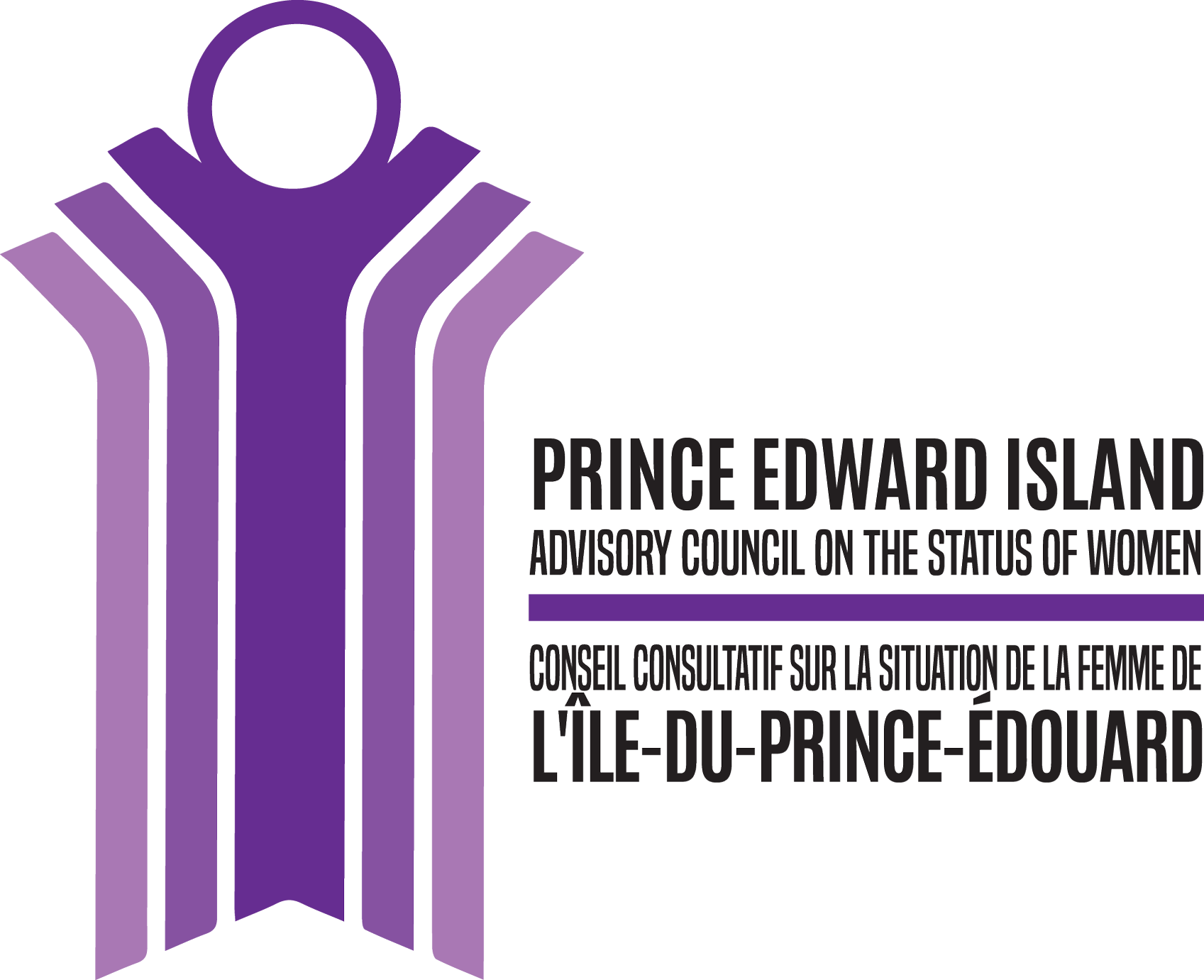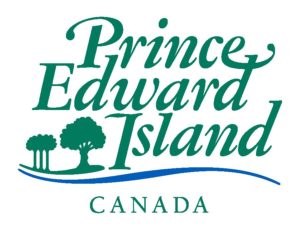 Input on a Bill to Amend the Employment Standards Act
Input on a Bill to Amend the Employment Standards Act
to Include Emergency Leave Provisions
PEI Advisory Council on the Status of Women
May 13, 2020
Download as PDF: PEIACSW input on emergency leave under employment standards
Dear Patricia McPhail and colleagues:
The Prince Edward Island Advisory Council on the Status of Women (PEIACSW) is a nine-member, government-appointed arms-length government agency with a mandate to advise government and educate the public on matters that relate to the status of Prince Edward Island women.
The Advisory Council would like first to acknowledge government’s work to draft legislation to protect workers who require emergency leave as a result of the public health emergency we find ourselves in. The COVID-19 pandemic has revealed numerous gaps in the systems we rely on to support income, health, protection of workers, caregiving, and equitable outcomes for all Island residents and all Canadians. Thank you for so swiftly undertaking a scan of similar legislation in other jurisdictions and looking at solutions that will benefit Prince Edward Islanders and allow them to follow health directives, provide care and assistance to others, and keep each other safe while safeguarding jobs, careers, and incomes.
We are very pleased to say that it was possible to engage our full Council in consideration of the draft Bill to Amend the Employment Standards Act, via email and a previously scheduled virtual meeting. As a result of this consultation among members, this letter includes perspectives and rich lived experiences from a diverse, committed group of Island women.
The Prince Edward Island Advisory Council on the Status of Women is in favour of adding “emergency leave” provisions to the Employment Standards Act to protect workers’ jobs during a leave of absence from work during an emergency.
- We are in favour of this leave being available to all employees who fall within the provincial sphere, including those covered under collective agreements.
- We are strongly in favour of making the leave retroactive to when the current COVID-19 public health emergency in PEI was declared.
- We strongly support the specification that it “is not required to provide a certificate from a medical practitioner or nurse practitioner as evidence.”
We understand that the intention of the Bill is for the leave to cover, for example,
- Employees who are required to self-isolate for two weeks following travel
- Employees who must stay home to care for their children due to the closure of schools and day-cares
- Employees who are impacted by a direction or order of the Chief Public Health Officer under the Public Health Act (for example, employees whose place of work has been closed as directed by the CPHO)
We presume it also would cover employees who are required to care for or assist someone who must self-isolate or is ill with COVID-19.
We understand that the intention of the Bill is for the employee to return to the same position, pay, and benefits held before their emergency leave began, once they return to work.
Our non-expert, laypeople’s reading of the draft legislation indicates the leave provisions will fulfill the stated intentions and will additionally protect those who need to provide care and assistance not only to children but to adults who are ill or deemed vulnerable.
It will be extremely important for regulations to be as inclusive as possible in their definitions of “requires” and “care,” “assistance,” and “care or assistance.” These must not be defined too narrowly, or too many people will be excluded from the leave. We recommend that “care” and “assistance” specifically include the care of protection from the effects of the emergency. In the case of COVID-19, “caring” for a family member might not look like traditional caregiving; it might look like self-isolating or excluding yourself from your workplace to protect an adult member of your household who has lung disease and would be at high risk of death if they were to contract the virus.
Likewise, we advocate for the definition of “family members” to be broader than “immediate or extended family of the employee” and to include an individual or individuals who are family by choice, friends treated as family, and non-familial household members. This is especially important for people who live alone, for people who live in non-familial households (such as with roommates), people whose family and extended family are separated from them by border and travel restrictions, and people who are alienated or estranged from their “immediate or extended” family members or who are being kept isolated from family by abuse or violence.
We recommend that the regulations include a comprehensive list of those who can provide “evidence that is reasonable in the circumstances and in accordance with the regulations that the employee is entitled to the emergency leave” and that the list be similar to that included in the regulations for domestic violence/intimate partner violence/sexual violence leave and that the list specifically include Indigenous elders. Additionally, to ensure the leave has its desired effect and there is absolutely no confusion, we recommend that a clause be added to state clearly that having to take emergency leave is not just cause or reasonable cause for termination. This is, of course, the implication of the Bill, but better yet to state it outright.
Most importantly, the PEI Advisory Council on the Status of Women advocates for emergency leave to be a paid leave.
We advocate for this because gender analysis clearly demonstrates that the effects of the COVID-19 emergency disproportionately affect women, and a paid leave would do more to mitigate these negative effects. Given the alarming statistics on the gendered effects of this emergency, an unpaid leave is insufficient to support gender equality, and an unpaid leave will disadvantage women with unequal material consequences for their income and wellbeing – and even their ability to access emergency leave. The health effects of COVID-19 are significantly affected by gender:
- Up to May 11, 2020, 55% of COVID-19 cases in Canada and 53% of deaths were women, though men were consistently more likely to be hospitalized and admitted to the ICU than women. (See https://www.canada.ca/content/dam/phac-aspc/documents/services/diseases/2019-novel-coronavirus-infection/surv-covid19-epi-update-eng.pdf.)
- More women than men are reporting poorer mental health during the pandemic period. According to recent reports from Statistics Canada, “About half of women said that their mental health was excellent or very good (49% compared to 60% of men).” The mental health gap between women and men is greater than reported in 2018, outside pandemic times. (See https://www150.statcan.gc.ca/n1/pub/45-28-0001/2020001/article/00003-eng.htm.)
The economic effects of COVID-19 are so gendered, some Canadian feminist economists such as Armine Yalnizyan are terming the sudden economic recession a “she-cession.”
- In PEI, unemployment numbers from Statistics Canada report that a higher rate of women than men left the workforce since the beginning of the pandemic; it is reasonable to conclude that for some of these women, caregiving responsibilities made it necessary for them to leave the workforce. Even more staggeringly, however, the numbers also reveal the unemployment rate for women 25 and over still in the workforce almost doubled. This gendered effect was very pronounced in PEI compared to the rest of Canada, where the unemployment rate was roughly equal between women and men. (See https://www.cbc.ca/news/canada/prince-edward-island/pei-women-jobs-pandemic-april-2020-1.5561720.)
- Across Canada, women of all age groups expressed more worry that they would lose their jobs than male counterparts (See https://www150.statcan.gc.ca/n1/daily-quotidien/200423/t002a-eng.htm.)
- The vulnerability of single mothers to job loss and income fluctuation is, as ever, acute, and work interruptions, such as unpaid leave, affect them most. Statistics Canada reports, “single mothers and their children are among the most financially vulnerable during a short period of joblessness: more than half of them (56%) are at-risk of not being able to make ends meet even after selling their liquid assets and using other private sources of income.” Vulnerability is also high among households where the main earner is an Indigenous person or a recent immigrant, suggesting the vulnerability of racialized people, and racialized women, in particular to the effects of unpaid leave. (See https://www150.statcan.gc.ca/n1/pub/45-28-0001/2020001/article/00010-eng.htm.)
Women are not only workers, of course; women are also employers. In Prince Edward Island in 2019, there were 3,600 self-employed women business owners. The majority of these, 2,500 (69.4%) were solo entrepreneurs, but others are employers, who identify the importance, and challenge of recruiting and maintaining good employees. (See https://www.centreforwomeninbusiness.ca/site/media/CWB/WOMEN%20BUSINESS%20OWNERS%20IN%20ATLANTIC%20CANADA%20Nov%206%202019.pdf.)
For some employers, particularly small and medium-sized businesses and not-for-profit organizations, and particularly for those in sectors most affected by the emergency, a requirement to provide paid leave may create hardship and may even make the difference between keeping the doors open or closing up shop, or between solvency and bankruptcy.
In the current COVID-19 emergency, many small businesses affected or closed due to the pandemic are on the brink of bankruptcy and cannot afford to subsidize paid leave. Many are holding on, taking advantage of the 75% federal wage subsidy that is available, and continuing to pay the remaining 25% to retain their employees and to assist them even though it is a strain on their business.
The PEI Advisory Council on the Status of Women acknowledges that requiring employers to provide paid leave may additionally require further support programs for workers (as provided through the federal government and the EI program for caregiving leaves) or for employers. Such funding programs would be essential to support the sustainability of job-creating small businesses, in particular. In Prince Edward Island, almost half (49.2%) of all self-employed individuals in PEI have fewer than five employees; almost three quarters of small businesses (73.4%) have fewer than ten employees. These are the employers who will need assistance to make paid leave viable.
Making the leave retroactive to the date the public health emergency was declared is an important provision; some workers will have been affected since that date by the pressures this legislation change is meant to address and will have required emergency leave, whether that would mean the loss of their employment or not. However, we are concerned about the timing of these much-needed legislative changes and, especially, the urgency of communicating the intended changes to employers and employees. Right now, the earliest an emergency in-person session of the Legislative Assembly of PEI is planned for is May 22, 2020, and that was also the anticipated date for Phase 2 of the Renew PEI Together ease-back plan to commence. Ideally, emergency leave would have been in place before Phase 2; if not in place, the intention should at least have been signalled. Now, because a number of restrictions were lifted early, on May 8, 2020, there may be even more workplaces where workers require a continued or new absence from work for reasons that would be outlined in this legislation and need to know their jobs will be protected, retroactively and into the future.
Both employers and employees need to know as soon as possible what is proposed in this legislative amendment and that when it passes, unpaid leave with job protection will have applied back to March 16, 2020. We hope it will be possible to lift the veil of confidentiality on the proposed bill without delay.
With regard to communication about changes to the Employment Standards Act, the leave provisions within it, and any benefits that might be associated with leave, Council members wanted to emphasize that there is a great deal of confusion in the community about what is provincial and what is federal responsibility. Communications with the public should take this confusion into consideration and plan for communications that clarify people and eliminate confusion.
An additional note on caregiving leaves: The Advisory Council has heard from several women in the community whose maternity and parental leave has been severely disrupted by COVID-19 and who have been unable to take advantage in the usual way of public services and social supports and bonding that are usually available to new parents. On their behalf, we are advocating for an extension of caregiving leaves, including maternity and parental leave, as a result of the current emergency. We recommend that the provincial government extend all caregiving leave provisions under the Employment Standards Act by three additional months or the duration of the public health emergency, whichever is longer. We recommend that the provincial government should, through the Minister Responsible for the Status of Women, advocate to the federal government for the extension of caregiving benefits including parental leave by at least three months or provide a provincial COVID-19 caregiving benefit to those who are on caregiving leave during the current emergency. We look forward to hearing about provincial government advocacy and efforts in this regard.
An additional note on domestic violence/intimate partner violence/sexual violence leave: Council members are concerned not only that risks of domestic violence and intimate partner violence and sexual violence have intensified during the pandemic, but the complexity of leaving a relationship and the steps to address violence, especially court processes, are all requiring more time than usual. The Council asks that government consult the cross-departmental Family Violence Prevention Committee it has struck on this matter and seek their advice on extending the leave provisions for violence leave to meet the needs of survivors under extraordinary circumstances.
In conclusion, the members and staff of the PEI Advisory Council on the Status of Women continue to look forward to participating in a comprehensive review of the Employment Standards Act when the current crisis situation permits and we can turn our attention to long-term solutions and to well-considered legislative changes that will serve Islanders during times of stability as well as crisis. Thank you for the opportunity to provide our Council’s feedback. Please let me know if you have any questions about this feedback.
Sincerely,
Debbie Langston, Chairperson
cc:
Hon. Natalie Jameson, Minister Responsible for the Status of Women
Michelle Harris-Genge, Director, Interministerial Women’s Secretariat
Members of the PEI Advisory Council on the Status of Women


